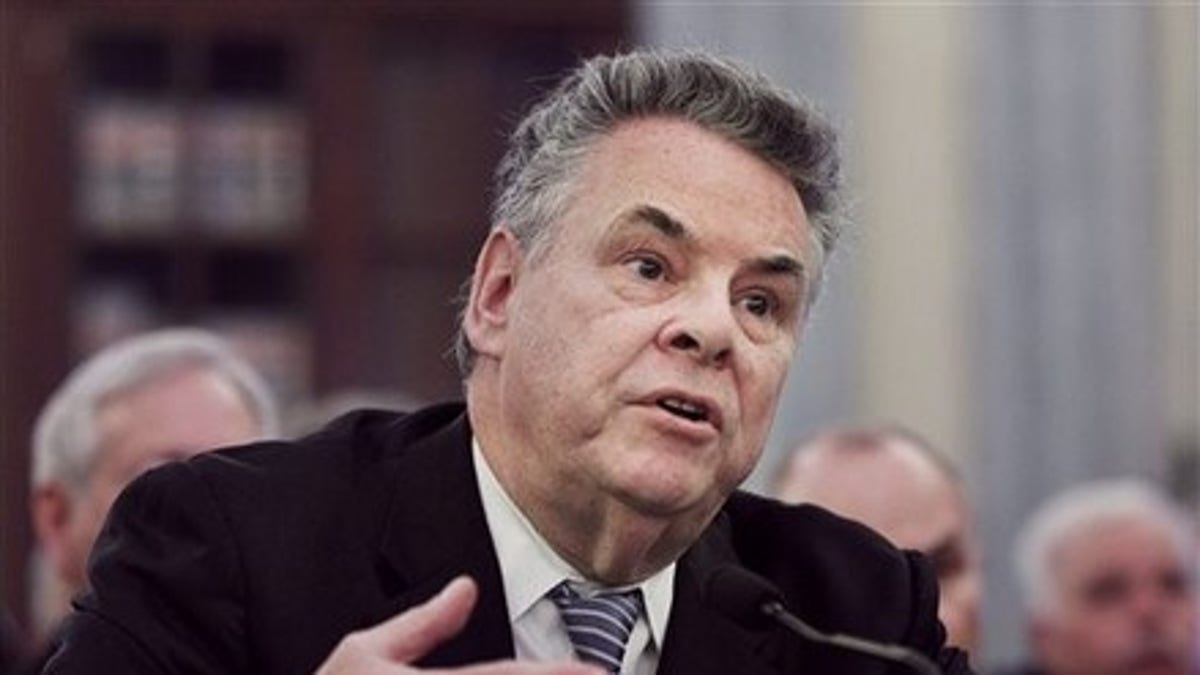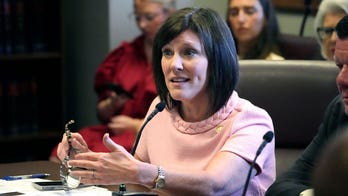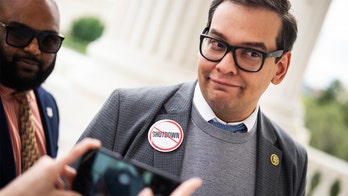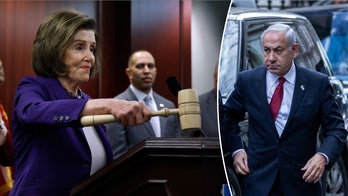
Feb. 16: House Homeland Security Committee Chairman Rep. Peter King, R-N.Y., testifies on Capitol Hill in Washington before the Senate Commerce Committee hearing on "Safeguarding Our Future: Building a Nationwide Network for First Responders." (AP)
WASHINGTON -- Radical Islam poses a threat to the United States as a whole, but is particularly dangerous to American Muslims who are targeted by terror groups, the chairman of the House Homeland Security Committee said Sunday in defending upcoming hearings on radical Islam.
Rep. Peter King, R-N.Y., is facing a backlash, including a Sunday protest in New York, over his decision to hold Thursday's hearing -- the first in a series -- on the threat of Islamic radicalization. King said he's surprised the American-Muslim community is not embracing his hearings because they are the ones most victimized when radical elements infiltrate their communities.
"I've said time and again the overwhelming [majority] of Muslims are good Americans, but the threat is coming from their community and we have to find out why, how it is being done and how to stop it," he told Fox News. "We have an absolute obligation to investigate that."
Rep. Keith Ellison, D-Minn., the first Muslim elected to the House, said that while it's proper to investigate radicalization, he thinks it is wrong to single out a religious minority.
"If we're going to talk about gang violence, I don't think it's right to talk about, you know, only the Irish community and the Westies. I think we talk about gang violence. I think, if we're going to talk about organized crime, it's not right to just talk about the Russian community," Ellison said during a Sunday appearance with King on CNN's "State of the Union."
However, Ellison, who will be participating in the hearings, added that it makes sense to talk to the Muslim community about how to "meet the challenge of public security" to prevent people like Anwar al-Awlaki, the American cleric who fled to Yemen, from reaching his tentacles into American-Muslim communities.
"I think it makes sense to talk about the Internet, confronting ideology of people like Anwar al-Awlaki. I think where he's trying to exploit and misuse Islam, we should counter him with what Islam really does say. And so I do think that there is a place for that. I just think it doesn't make sense to narrow in on a discreet, insular group that has already been the target of a certain amount of discrimination," Ellison said.
King said that among the witnesses testifying at his hearing are family members of two men who were radicalized -- one was murdered and one committed an act of violence. He said they will discuss how the imams at the mosques they attended were involved and will offer "telltale indicators" so people can be aware of radicalization efforts within their surroundings.
"Also, we'll see from witnesses how often they are told not to cooperate with the FBI, not to cooperate with the police, and, somehow, a wall of silence builds up and that is part of why I'm holding the hearings," King told Fox News.
King added that while German officials are labeling the murder of two American airmen at an airport in German "radical Islam," the U.S. State and Homeland Security departments have refused to call it terrorism.
"It was terrorism, obviously, and should be called that," King said. "An American soldier who is defending our country was shot overseas by an Islamist and if that isn't terrorism, I don't know what is."
King said he has a good working relationship with DHS Secretary Janet Napolitano, but he doesn't know why the Obama administration isn't labeling the murder terrorism even as the president's deputy national security adviser was preparing to give a speech on the administration's approach to countering domestic radicalization.
"I think my position on the administration is not as far apart as some might think. I'm just carrying their position to the logical conclusion," he said.
In remarks prepared for delivery Sunday, Deputy National Security Adviser Denis McDonough said the United States does not practice guilt by association.
"We have a choice. We can choose to send a message to certain Americans that they are somehow 'less American' because of their faith or how they look; that we see their entire community as a potential threat -- as we've seen in several inexcusable incidents in recent weeks across the country that were captured on video. ... Or, we can make another choice. We can send the message that we're all Americans," he said.




